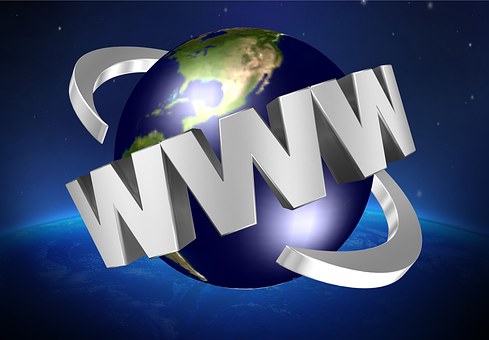Saudi summit loses all its media partners over Khashoggi situation. WPP wins Panadol’s global media business, but loses United Airlines. Amazon and Netflix could benefit from public funding in Britain. Cosmo in Australia to close. DAN China report on AI.
Saudi summit loses all its media partners over Khashoggi situation

AP Photo/Jacquelyn Martin
The Future Investment Initiative summit, due to be hosted in Saudi Arabia, has lost all of its media partners due to Washington Post columnist Jamal Khashoggi’s disappearance and alleged murder in Turkey.
The last remaining partner, Fox Business Network, followed CNN, The New York Times, Bloomberg, The Financial Times, CNBC and Nikkei (who all pulled out last weekend) out the door yesterday.
Starting on 23 October, the summit will showcase Saudi ruler Crown Prince Mohammed bin Salman’s Vision 2030 plan to break the country’s dependence on oil.
But the world will not see any coverage of the event, with the talk of the international media community still firmly focused on Khashoggi and the events surrounding his disappearance.
To read more, published by CNN Business, click here.
WPP wins Panadol’s global media business, but loses United Airlines
 WPP has scored a huge win, scooping GSK Consumer Healthcare’s Panadol global media business.
WPP has scored a huge win, scooping GSK Consumer Healthcare’s Panadol global media business.
The agency will oversee the creation of integrated creative campaigns and content across advertising, digital, shopper and expert marketing, PR and communications.
Bandt has the full story here.
While there was reason to celebrate on that front, WPP also received some bad news this week. United Airlines broadened its relationship with Dentsu Aegis Network, taking work away from WPP.
DAN will now be responsible for lead global media and social duties, with Carat running media planning and buying, Merkle handling targeted marketing, and 360i overseeing social media.
AdWeek has more information, click here.
Amazon and Netflix could benefit from public funding in Britain
 Private broadcast firms like Amazon and Netflix could be subsidised by public funding in England.
Private broadcast firms like Amazon and Netflix could be subsidised by public funding in England.
The government has earmarked a £60 million surplus for distribution, from a fund set up to assist with the production of children’s TV, programming in the UK’s indigenous languages, and commercial radio. Any party is open to bid for money from the fund.Nike
But the BBC, which is a beneficiary of the fund, believes public funding should not be given to private firms like Amazon and Netflix.
To read more about the situation, published by The Guardian, click here.
Nike grows sponsorship as part of total ad expenditure
 Nike might have had a tricky time of it this year due to fallout from a couple of the sports stars it sponsors; think Colin Kaepernick and most recently, rape allegations agains Christiano Ronaldo, but the global sports and apparel giant is upping its endorsement investments.
Nike might have had a tricky time of it this year due to fallout from a couple of the sports stars it sponsors; think Colin Kaepernick and most recently, rape allegations agains Christiano Ronaldo, but the global sports and apparel giant is upping its endorsement investments.
WARC has reported that endorsement contracts are expected to account for 37.0% ($1.3 billion) of total adspend in the 2017/18 fiscal year (FY). This is a growth in share of 9.4 percentage points (pp) since FY10/11.
“Further growth in sponsorship spend for Nike is expected in FY18/19, reaching a new high of $1.4 billion. This follows global growth in sponsorship investment, which is forecast to reach $66 billion this year,” it reported.
For more numbers, check out the story here.
Chinese marketers don’t have clear understanding of AI
 Eighty six percent of Chinese marketing professionals believe artificial intelligence will impact on their industry over the next two years, but only 26% had a clear understanding of what it is.
Eighty six percent of Chinese marketing professionals believe artificial intelligence will impact on their industry over the next two years, but only 26% had a clear understanding of what it is.
This was revealed in the Dentsu Aegis Network’s ‘Making AI Actionable’ report. DAN surveyed and interviewed over 2000 marketing professionals across China meeting agencies, brands, media owners and technology partners. They delved into five areas where the application of AI is impacting marketing best practice in China: precision targeting, search, speech recognition, computer vision and content creation.
“To successfully deploy AI, businesses need to break down silos across organisations. We have to reimagine how to work in a new age of human + machine,” said CEO of Dentsu Aegis Network China, Susana Tsui.
For the full results and some great graphs, read the story on Mumbrella.
Cosmopolitan in Australia to close after 45 years
 As news broke in South Africa that Associated Media Publishing would not renew its licence to publish Marie Claire in South Africa, Bauer Media in Australia announced that it was to cease publishing Cosmopolitan in that country, ending a 45 year run.
As news broke in South Africa that Associated Media Publishing would not renew its licence to publish Marie Claire in South Africa, Bauer Media in Australia announced that it was to cease publishing Cosmopolitan in that country, ending a 45 year run.
CEO of Bauer Media ANZ, Paul Dykzeul, told The Guardian magazine closures were “never easy, desirable or done without careful consideration for all of those involved”. He said the brand had launched careers, supported great brands and causes, and inspired millions of young women.
But, he said, publishers had to ensure they were “continually reshaping and defining the business so that our readers of today, and those of tomorrow, remain engaged with the content we publish and the platforms upon which we deliver”.














